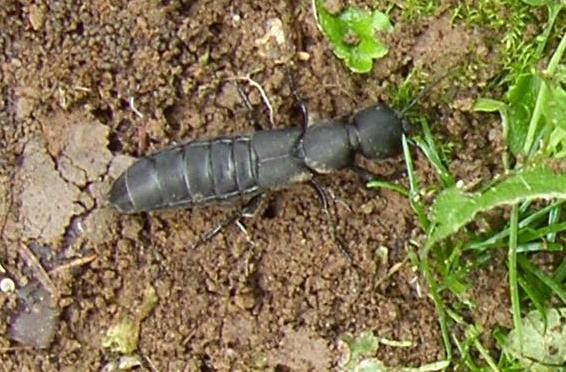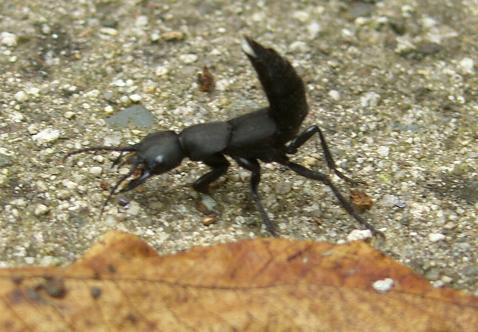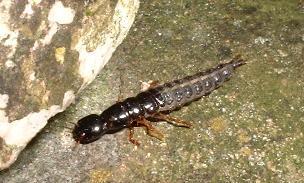
A member of the Rove Beetle family it is distinguished by having short elytra or wing covers, although they rarely fly. Rove beetles have been around since the Triassic Period which was before the dinasaurs. The body is all black and covered in fine hairs. They are found in and around decaying material, feeding on fly larvae and other insects.
It is a useful predator, most active at night. Their prey includes adult New Zealand Flatworms, Slugs and their eggs, and Carrot Root Fly eggs and larvae, so they are very useful to gardeners. During the day they hide under debris and scurry to cover if exposed.

When disturbed they adopt a threatening scorpion-like posture raising their rear end and opening their jaws. This gives rise to an alternative name, the Cock-tail Beetle. They can release a foul-smelling substance from two white glands that appear from the rear end. Although they do not have a sting, they can give a painful bite. They have been linked with the devil since the middle ages and the superstition was that whoever the tail pointed at would soon die. Other common names given to them are Devil's footman, Devil's coachman and Devil's steed.

The larval stage is mobile and just as predatory as the adult
Back to GARDEN CREATURES